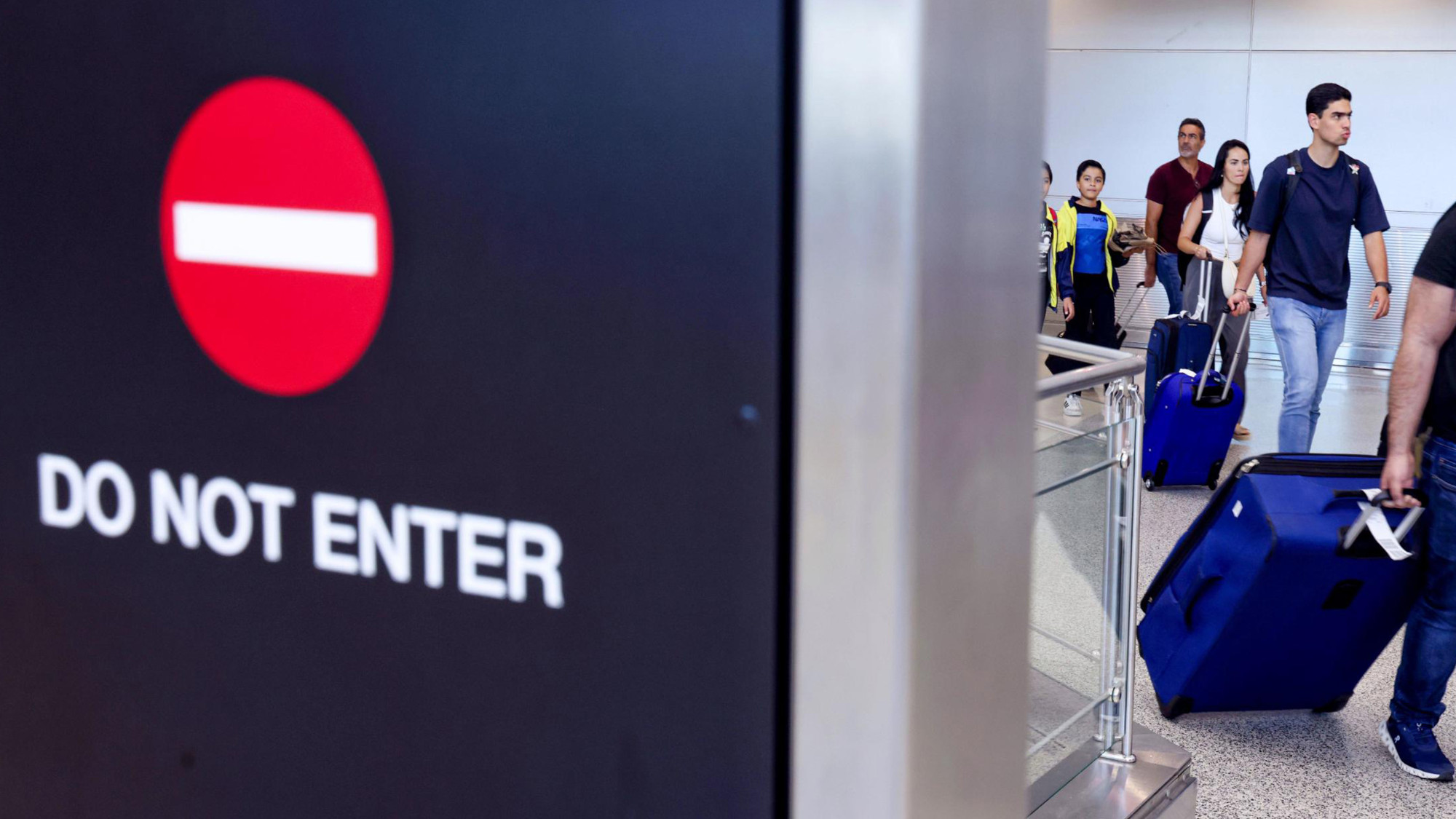Travel ban: It's back and it's bigger
Trump revives a controversial travel ban, targeting mostly poor, nonwhite countries

A free daily email with the biggest news stories of the day – and the best features from TheWeek.com
You are now subscribed
Your newsletter sign-up was successful
Welcome to the "gratuitously cruel sequel" to one of Donald Trump's most infamous first-term policies, said Moustafa Bayoumi in The Guardian. In an expanded repeat of the January 2017 "Muslim ban," the president last week ordered a ban on arrivals from 12 mainly poor, majority non-white countries and severe restrictions on seven more. Trump cited security concerns, including "the recent terror attack in Boulder." But the alleged attacker was from Egypt, which was not on the list; Trump explained that it's "a country we deal with very closely." The contradictions don't end there: The order also cited the problem of foreigners overstaying their visas, yet Spain, the source of more than 20,000 overstays in 2023, had more than all seven banned African countries combined but remains exempt. The ban includes "key cut-outs" for current green-card holders and visa holders, among others. But "make no mistake"—this order is designed "to keep America as white and as Western European as possible."
It will also cost lives, said Frances Robles in The New York Times. The ban includes no medical exceptions, meaning more than 300 Haitians on waiting lists for major surgeries in the U.S. are now barred from entering. Patients such as 6-year-old Brad Mertens Joseph, scheduled for a stateside operation to repair a hole in his heart, have had "a lifeline abruptly cut." This second-term ban will be "harder to fight in court," said Mariah Timms and Michelle Hackman in The Wall Street Journal. The 2017 ban came after Trump's promise of "a total and complete shutdown" of Muslim immigration, providing clear evidence of "racial and religious bias." But subsequent changes, including adding Venezuela and North Korea to the list, let the Trump administration secure a 5-4 Supreme Court victory in 2018, which gave the president wide latitude to bar foreigners he deems detrimental to U.S. interests. Trump's new version, reinstated after President Biden's repeal, seems carefully crafted to meet that standard.
When Trump announced the 2017 ban, "massive protests erupted at major airports," said Adam Serwer in The Atlantic. But the current administration has so thoroughly flooded the zone with legally dubious anti-immigrant measures—including shipping migrants to foreign gulags without due process—that this news barely caused a stir. It's a sign of how Trumpism has been "a kind of authoritarian autoimmune disease" that's just "wearing America down."
The Week
Escape your echo chamber. Get the facts behind the news, plus analysis from multiple perspectives.

Sign up for The Week's Free Newsletters
From our morning news briefing to a weekly Good News Newsletter, get the best of The Week delivered directly to your inbox.
From our morning news briefing to a weekly Good News Newsletter, get the best of The Week delivered directly to your inbox.
A free daily email with the biggest news stories of the day – and the best features from TheWeek.com